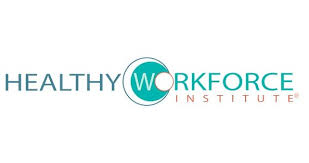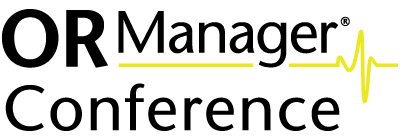
Editor's Note Wrapping up the 2025 OR Manager Conference with high energy, humor, and some fundamental truths about human interactions inside and outside the workplace, Monica Wofford, CSP, leadership consultant, Contagious Companies, shared tried and true strategies that work well to curb difficult behaviors and make difficult people have less…

Editor's Note Lead your OR like a samurai—anchor the team in purpose, practice servant leadership, and model the behavior you expect. That was the through line of this session, led by Brian Dawson, MSN, RN-BC, CNOR, CAPT, NC, USN (Ret), president and CEO of BD Perioperative Healthcare Consulting. He argued…

Editor's Note Culture change in healthcare does not come from quick fixes or sweeping overhauls but from steady, intentional leadership, said transformational consultant Priscilla Myers on a September 10 article published by the Healthy Workforce Institute and authored by speaker, author, and consultant Renee Thompson DNP, RN, FAAN. Myers shared…

Editor's Note Nurses in Kansas are raising alarms that the state’s licensing system is punishing them for minor mistakes and lapses, leaving many unable to work, according to a series of reports by KWCH between August 27 and September 12. Lawmakers are now pressing the Kansas State Board of Nursing…

Think of that colleague you would not miss if they called out sick. You may be short-staffed, but you know you are going to have a better shift without their chronic complaining, drama, and lack of productivity sucking all the energy and joy out of the department. Tolerated for too…

Editor's Note In this panel discussion, Cindy Hess, MSN, RN, FNP-C, CNAMB, director of nursing at Northeast Missouri Ambulatory Surgery Center; Vikram Tiwari, PhD, senior director and associate professor of anesthesiology, biomedical informatics, and biostatistics at Vanderbilt University; and Brian Dawson, MSN, RN, CNOR, CSSM, senior perioperative and healthcare consultant…

Editor's Note Surgeons are more likely to be reported for unprofessional behavior than any other category of physician, and pediatric specialists are least likely, according to a study published June 6 in Jama Network Open. Based on data from the Center for Patient and Professional Advocacy's Coworker Observation Reporting System…

TAKEAWAYS • HR should be involved early in the disciplinary process to help guide OR leaders’ decision-making throughout disciplinary and/or remediatoin processes. • Timing, privacy, opportunities for employee feedback, and an empathetic approach are among the most important considerations for a final termination meeting. • Whatever the process for communicating…

TAKEAWAYS • Addressing an employee with a competency or behavior issue is important for the well-being of staff and managers. • Determining the reason for the issue is an important first step to resolving it. • Sources of support for managers include colleagues, human resources, and educators. In today’s perioperative…

Anyone doubting the prevalence of workplace violence (WPV) in the healthcare setting need only search online for “injuries to healthcare workers.” In a sector rife with occupational hazards—from slips and falls to sharps injuries and infections—a significant portion of the links are sure to mention WPV, with many even focusing…